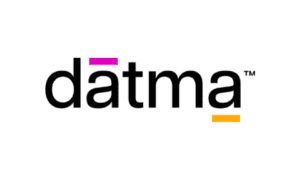The medical world is an ever-evolving field that continues to battle with ethics and privacy issues. As technology advances, new ideas and procedures become available, and with them come more complicated questions about how to preserve the privacy of our medical data. The future of healthcare is an exciting one, with technology advancing at a rapid pace and the potential for greater consumer engagement.
However, it is also important to consider the implications of this increased data connectivity on safety and privacy. This blog post will discuss the importance of protecting patient data in the medical world, as well as how HIPAA law can help protect that data. HIPAA law is a federal law that was passed in 1996 to protect individual’s health information from being shared or used without their permission. It applies to all forms of health care providers, including doctors, hospitals, pharmacies, insurance companies, and other entities that handle protected health information (PHI). HIPAA also sets standards for how PHI must be stored and transmitted securely.
Why Is Data Privacy Important?
Data privacy is essential in order to ensure that individuals’ personal information remains secure and confidential. Without proper protection of PHI, there is a risk that it could be used for malicious purposes such as identity theft or fraud. Additionally, if PHI is not properly secured, then it could be accessed by unauthorized individuals who may use it for their own gain or even harm the individual whose data has been exposed.
How Does HIPAA Help Protect Patient Data?
HIPAA helps protect patient data by setting standards for how PHI must be handled and stored securely. It requires organizations to have physical, technical, and administrative safeguards in place to protect PHI from unauthorized access or disclosure. Additionally, HIPAA requires organizations to provide patients with access to their own medical records so they can review them for accuracy and make corrections if necessary. Finally, HIPAA also provides patients with certain rights regarding their own medical records, such as the right to request copies or restrict access to certain types of information.
What Are Some Challenges Associated With Digital Health Data?
One challenge associated with digital health data is ensuring its accuracy and completeness when it is collected from multiple sources such as electronic health records (EHRs), wearable devices, mobile applications, etc. Additionally, there are privacy concerns related to how this data is used once it has been collected; for example, some organizations may use this data for marketing purposes without the patient’s knowledge or consent, which could lead to a breach of trust between the organization and its customers/patients. Finally, there are also challenges related to ensuring that digital health data remains secure; if not properly protected, then there is a risk that it could be accessed by unauthorized individuals who may use it for malicious purposes such as identity theft or fraud.
What Does Medical Data Privacy Look Like Now?
Medical data privacy right now is a complex web of regulations, laws, and best practices that seek to protect patient’s private information. In the United States, there are multiple federal protections for medical data privacy through laws such as HIPAA and HITECH. These regulations require all healthcare organizations to take certain measures to ensure the security and confidentiality of patient information. However, these laws are not always followed or enforced strictly enough, which can lead to breaches in medical data privacy. According to Protenus’ Breach Barometer Report from 2019, over 32 million patient records were exposed due to healthcare data breaches during that year alone! This means that it is still very important for individuals and organizations alike to remain vigilant about their own data security measures.
How Might Medical Data Privacy Change in The Future?
As technology continues to evolve at a rapid pace, many experts believe that there will be further advancements in medical data security protocols over time. For example, there has been some recent discussion about using blockchain technology as a way of protecting sensitive medical information. By leveraging distributed ledger technology like blockchain, healthcare providers can create systems where only those with permission can access patient records, and the information is stored securely on a decentralized network. Another potential solution could be stronger encryption methods for personal documents such as ePHIs (electronically protected health information). Companies like Google have already implemented advanced encryption techniques into their services, so it may not be too far off for something similar to be used for protecting medical data as well. Finally, artificial intelligence (AI) may also play a role in safeguarding personal health records by making existing systems more secure from cyberattacks and other forms of intrusions into networks housing sensitive patient data.
The future of privacy looks bright due in part to advances in technology such as artificial intelligence (AI) which can help detect suspicious activity more quickly than ever before. Additionally, new laws such as GDPR (General Data Protection Regulation) have been put into place, which gives individuals more control over their personal information by requiring organizations to get explicit consent before collecting or using any personal data about them. Finally, blockchain technology has also emerged, which can help ensure that digital health records remain secure by providing an immutable record of transactions that cannot be altered without authorization from all parties involved in the transaction.
What Are Some First Steps To Ensure Medical Data Privacy In The Future?
No matter what solutions are developed or implemented in the future, it’s important for both individuals and companies alike to take certain steps today when it comes to protecting our most valuable asset – our personal health information! Here are just a few tips:
- Use strong passwords & unique usernames when accessing health records online; use two-factor authentication whenever possible;
- Do not share your password or any other personal details with anyone else, even if they claim to work for your healthcare provider;
- Regularly audit your online accounts; stay updated on any changes or notices from your healthcare organization regarding updates in policies;
- Be sure any applications you download are trusted & certified sources; read reviews before you install so you know what kind of access the app will have on your device;
By following these simple steps now, we can begin laying down the groundwork needed to ensure robust security measures exist around our personal medical records when changes occur in the future!
Final Thoughts:
Overall, protecting patient data in the medical world is essential in order to ensure safety and privacy while still allowing innovation in healthcare technology through greater consumer engagement opportunities. By understanding what HIPAA law does and implementing measures such as AI-based security systems and blockchain technology, we can ensure that patient data remains secure while still allowing us to reap the benefits of increased connectivity within healthcare systems around the world.




































